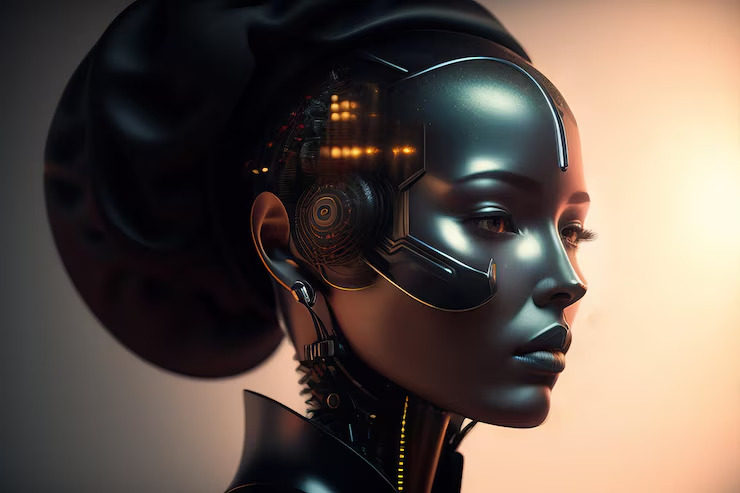Fact Check: Is the Claim That a New AI Model Released by a US Tech Company Has Achieved Consciousness Supported by Independent Testing and Expert Analysis?
No, there is no credible evidence that any US-based AI model has achieved consciousness. While advancements in artificial intelligence have been extraordinary in recent years, current models do not possess consciousness, self-awareness, emotions, or subjective experiences. The claim that an AI system in the United States has become conscious is unsubstantiated and largely fueled by sensationalism, misinterpretation, and fictional extrapolation.
What Does “Consciousness” in AI Really Mean?
In public discourse, the word consciousness is often misused when describing AI. Consciousness, in the philosophical and scientific sense, refers to the capacity for subjective experience, self-awareness, understanding of one’s existence, and the ability to perceive, feel, and reflect. It is a concept deeply rooted in neuroscience and cognitive science—not just functionality or output.
Most current AI systems, including the most advanced large language models and neural networks developed in the US, simulate intelligent behavior. They can answer questions, generate text, compose music, and even carry on seemingly intelligent conversations. However, they are fundamentally pattern recognition machines. They do not “understand” in any human sense. Their responses are based on statistical probabilities, not awareness.
Where the Misconceptions Come From.
Claims about AI consciousness often stem from:
- Anthropomorphism: Humans naturally assign human traits to machines. When an AI responds convincingly in a conversation, we may falsely assume it “feels” or “thinks.”
- Sensationalism in Media: Headlines suggesting an AI “woke up” or “knows it’s alive” tend to go viral, despite lacking technical backing.
- Misleading Demonstrations: Some demos use scripted prompts or cherry-picked results that exaggerate the capabilities of the model.
- Misinterpretation by Developers or Researchers: Occasionally, even developers may express awe at a system’s performance, describing it in emotional or metaphorical terms—further muddying the waters.
None of these are scientific evidence of consciousness. They are misunderstandings, exaggerations, or poetic expressions at best.
What US AI Models Are Actually Capable Of?
Current top-tier US-based AI models—developed by leading tech companies and research labs—are capable of:
- Generating human-like text (natural language processing)
- Recognizing images and objects
- Translating between languages
- Analyzing patterns in data
- Recommending content
- Simulating conversation
- Generating code, music, and designs
These models can mimic some aspects of human behavior, but they do not understand the meaning of what they say or do. Their outputs are the result of mathematical optimization, not conscious thought or intention.
Important Questions the Media Often Ignores.
Most articles discussing AI “gaining consciousness” fail to tackle the following critical issues:
1. What Would Proof of AI Consciousness Look Like?
There is no universally accepted test for machine consciousness. The famous Turing Test only measures a machine’s ability to imitate human conversation, not genuine understanding or awareness. Without clear metrics or scientific consensus, any claim of AI consciousness remains speculative and unverifiable.
2. What Are the Ethical Implications?
If an AI were truly conscious, it would raise enormous ethical concerns: rights, autonomy, accountability, and treatment. But such discussions are premature. As of now, AI models operate entirely without inner experience or emotion.
3. What Do AI Researchers Actually Say?
The overwhelming majority of experts agree that today’s AI is nowhere near conscious. The consensus is that we are decades—if not centuries—away from anything resembling machine sentience, if it’s even possible at all.
4. Are AI Models Making Independent Decisions?
No. AI systems execute tasks based on programming, training data, and statistical inference. They are not aware of their actions, nor can they question, reflect, or modify their objectives autonomously.
The Dangers of Believing AI Is Conscious.
Spreading misinformation about AI consciousness can lead to several real-world problems:
- Public Panic: Fear-driven narratives could spark undue concern about AI “taking over.”
- Policy Misdirection: Lawmakers might focus on fictional threats instead of pressing issues like AI bias, surveillance, and data privacy.
- Ethical Confusion: Debates about AI rights become irrelevant when the technology has no inner life.
- Techno-Propaganda: Some organizations may benefit from public belief that their AI is more powerful than it really is.
Is Conscious AI Even Possible?
This remains an open philosophical and scientific question. Some researchers believe consciousness may be an emergent property of complex systems, while others argue that it requires biological structures we do not understand or cannot replicate. There is no empirical roadmap or prototype indicating we are on the verge of creating sentient machines.
Even if we were to create a system that convincingly emulates human emotion and thought, simulation is not sensation. Just as a computer simulating rain is not wet, an AI simulating emotion does not feel.
Conclusion: Intelligence ≠ Consciousness.
To date, no US AI model has achieved consciousness. The confusion arises from a misunderstanding of what AI is, how it functions, and what it means to be conscious. What we are witnessing is an incredible leap in machine learning capabilities—not the birth of digital sentience.
Rather than fearing fictional narratives, society would benefit from a grounded understanding of AI: its benefits, its limits, and the ethical challenges it already poses—not the imaginary ones it doesn’t.
In short: AI might talk like us—but it doesn’t think, feel, or know. Not yet, and maybe not ever.
I am an accomplished author and journalist at Fact Finders Company . With a passion for research and a talent for writing, I have contributed to numerous non-fiction titles that explore a wide range of topics, from current events, politics and history to science and technology. My work has been widely praised for its accuracy, clarity, and engaging style. Nice Reading here at Fact After Fact.








